Rethinking data science education in the age of genAI
Jenny Richmond Ph.D
How do we know what students know when chatGPT can do many of the tasks we have traditionally relied on to assess learning?
about me
- ex-academic UNSW Psychology
- co-founder R-Ladies Sydney
- developer #RYouWithMe
- currently… working out next steps
what are educators doing?
warning students against short cutting the process of learning

thinking about assessment change
Interviews with 42 data science educators (33 institutions, 10 countries)
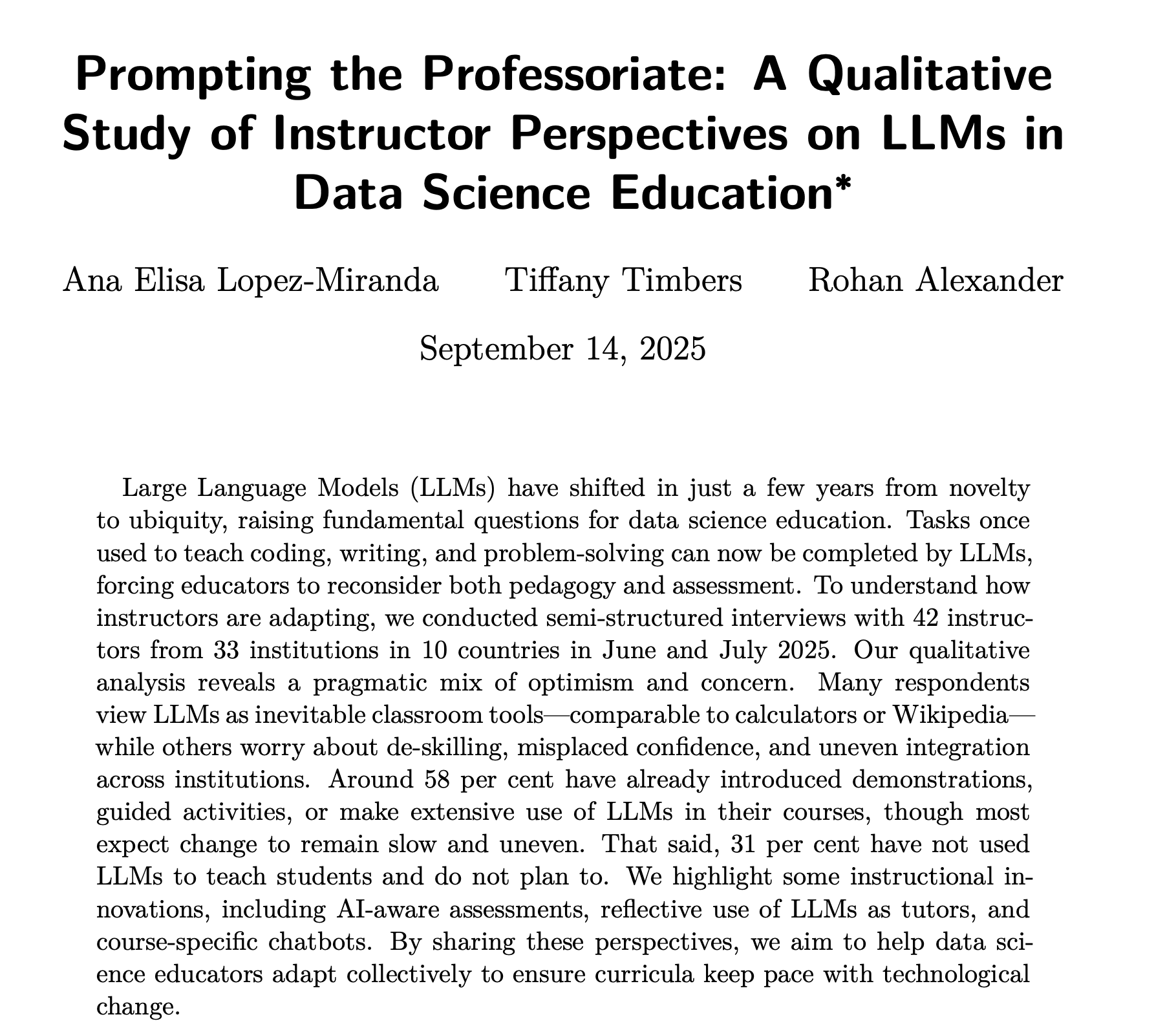
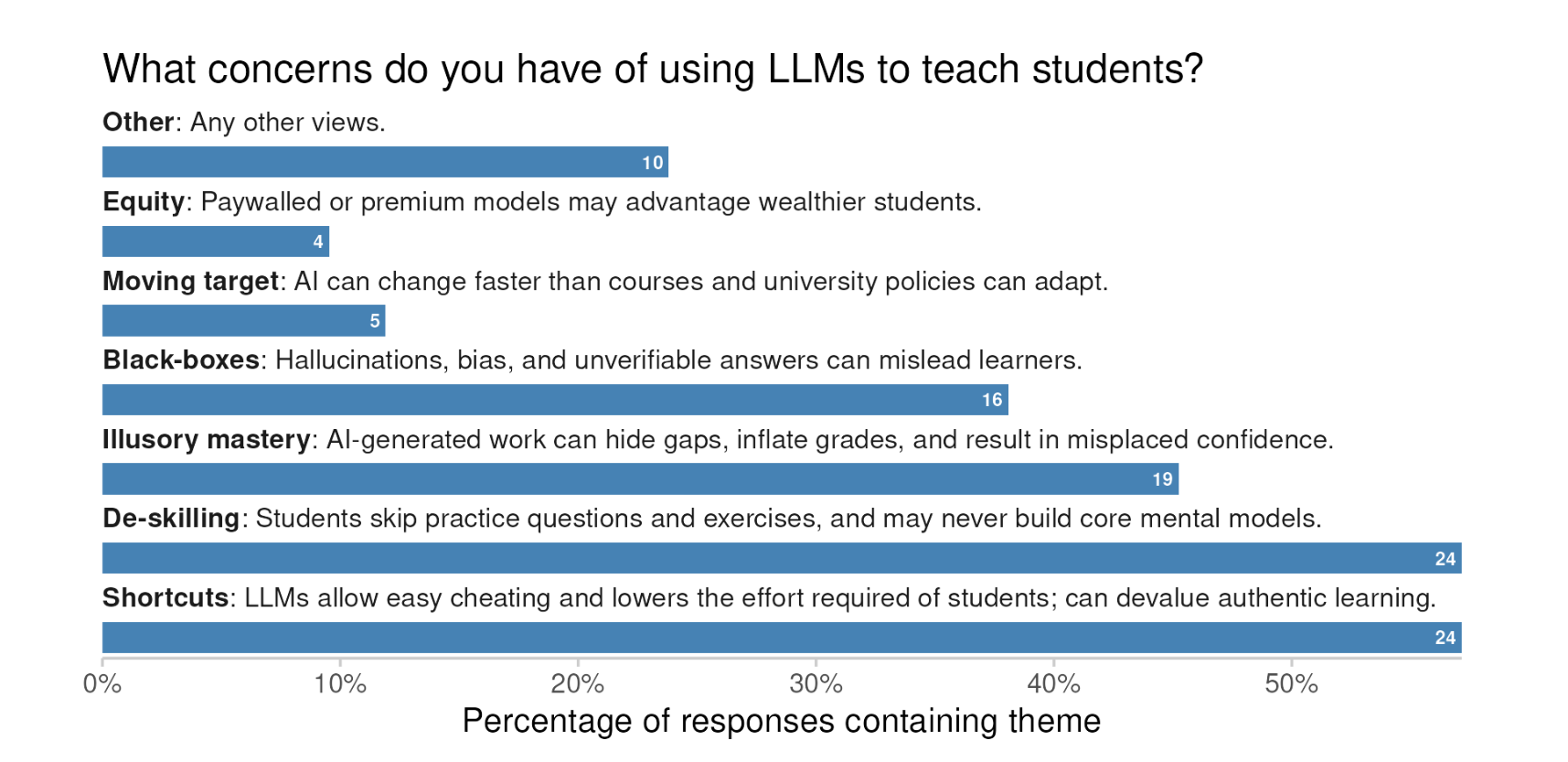
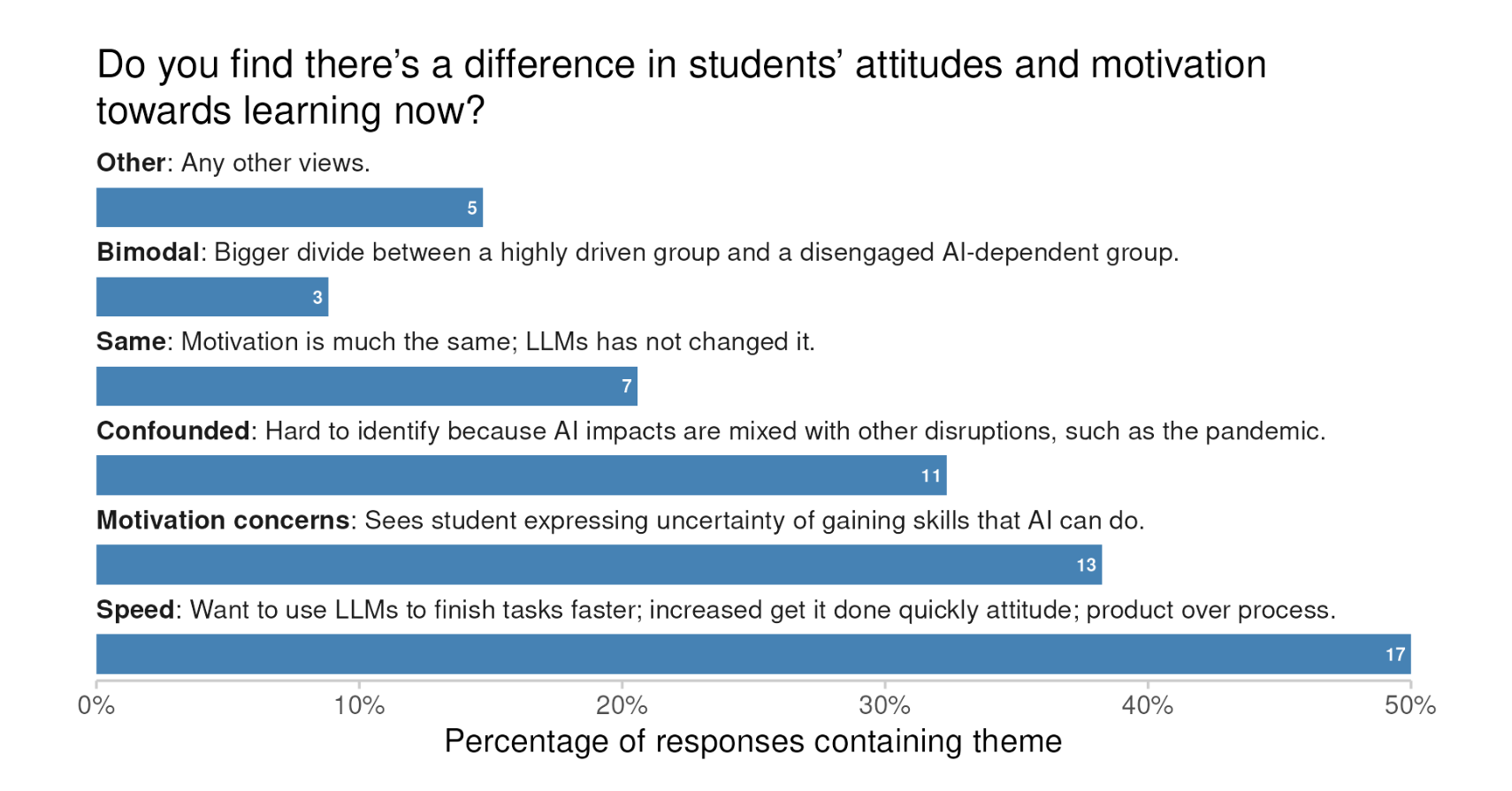

why are educators not adapting more quickly?
The challenge of generative AI and assessment meets all 10 of Rittel & Webber’s (1973) criteria for “wickedness” Corbin et al., 2025

my approach to the wicked problem of generative AI
disclaimer: this is example is probably only applicable to my context
learning to learn
Self regulated learners succeed because they
- set goals and plan
- implement effective strategies
- monitor how things are going and seek help if needed
- evaluate their own work
- set more goals…
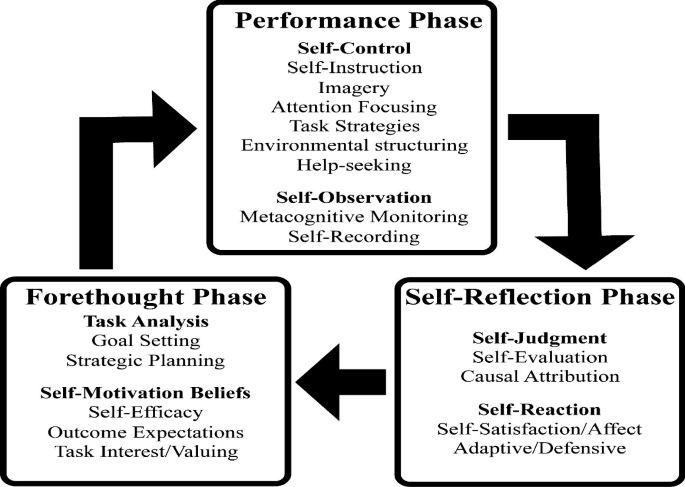
Learning (re)design
- Who: N = ~40 3rd year Psych students, WAM > 75% invited, tracking into honours
WHAT do I want them to learn?
I want students to be able to…
- understand the challenge of computational reproducibility
- visualise data using code
- document their process in a reproducible report
- work in a team
HOW do I want them to learn it?
I want students to …
- learn together
- engage in metacognition and self reflection
- leverage generative AI responsibly
reproducibility project
Task modelled on verification report process being adopted by Psychology journals
- each group assigned a Psychological Science paper
- task to use open data and code to reproduce descriptives and plots
can we use GenAI?
yes… but, lets play with it first
Week 5 workshop
- learning new things in R
- documenting your code
- debugging errors
- adhering to tidyverse style
Each group is assigned a task and 2 AI tools (chatGPT, Claude, Copilot, Perplexity) to compare. They get 45 min class time to “play” and then report back what they learned.
can we use GenAI?

what tasks did they use GenAI for?

Take home message
We are dealing with a wicked problem
- it is not solvable
- be kind to yourself
designing learning
- What do you want students to be able to do?
- How do you want them to learn to do that?
- Design assessment that provides you evidence of learning
one more thing…
Read Olivia Guest’s position paper

slides I didn’t cover…
what are students doing?

what are students using it for?
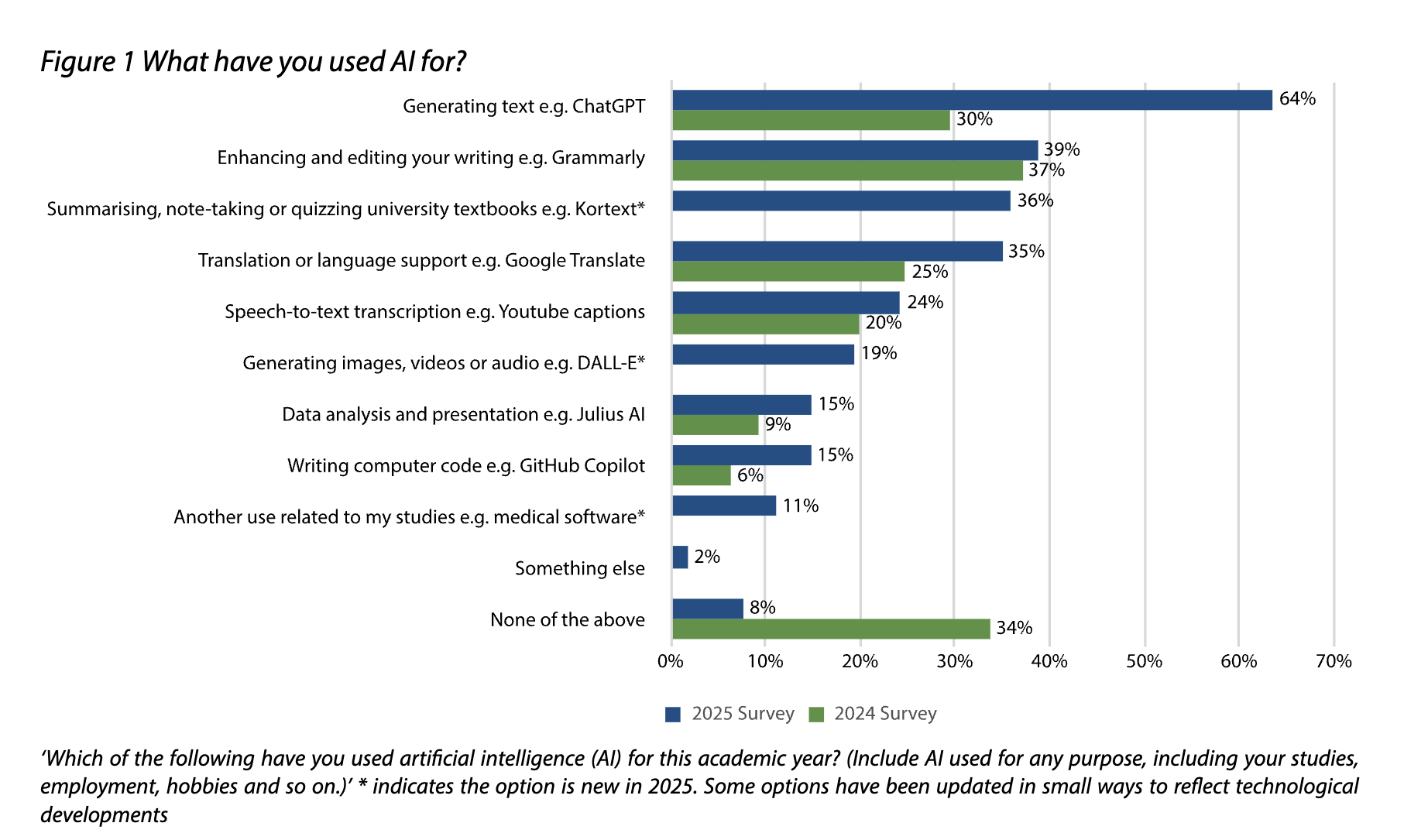
why are students using it?
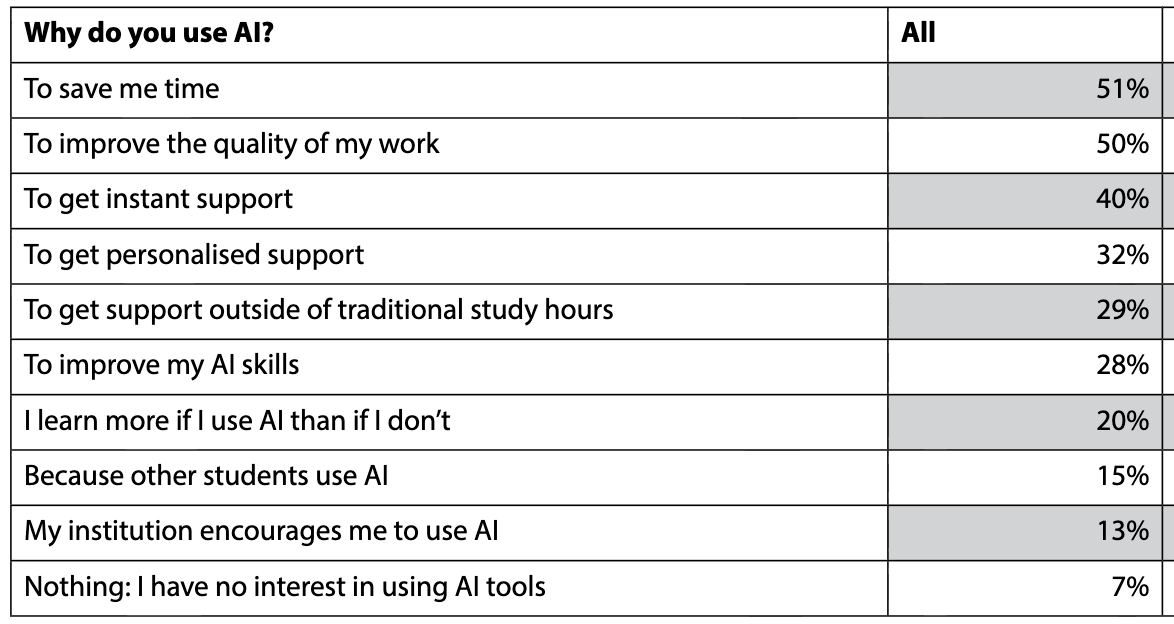
what are universities doing?
some universities are trying to control it

others are acknowledging that it is ubiquitous


jenrichmond.github.io/wombat
